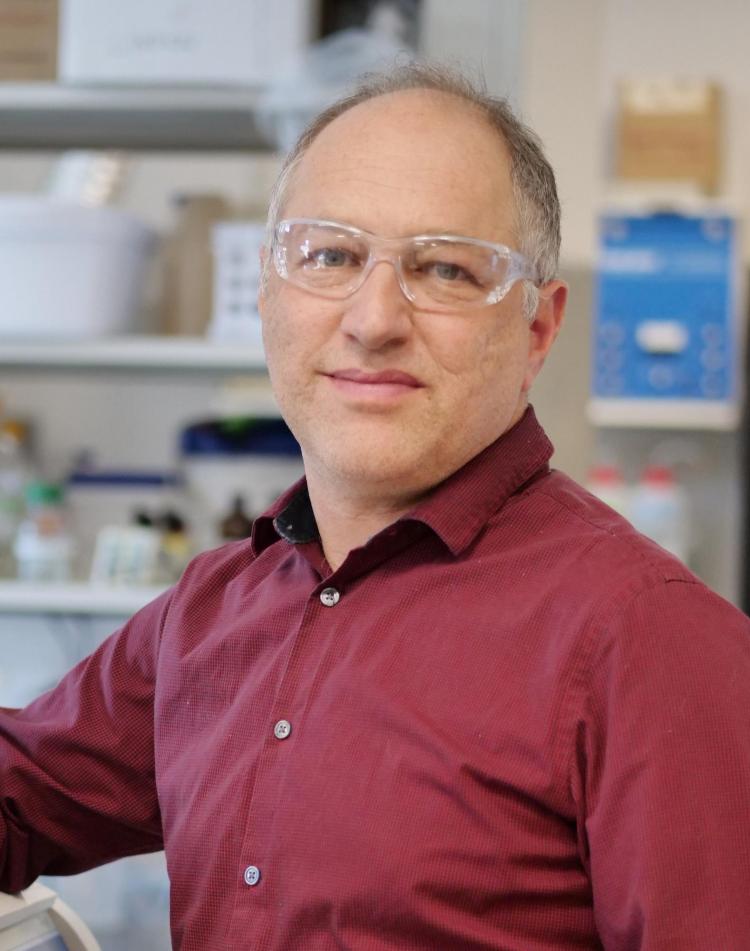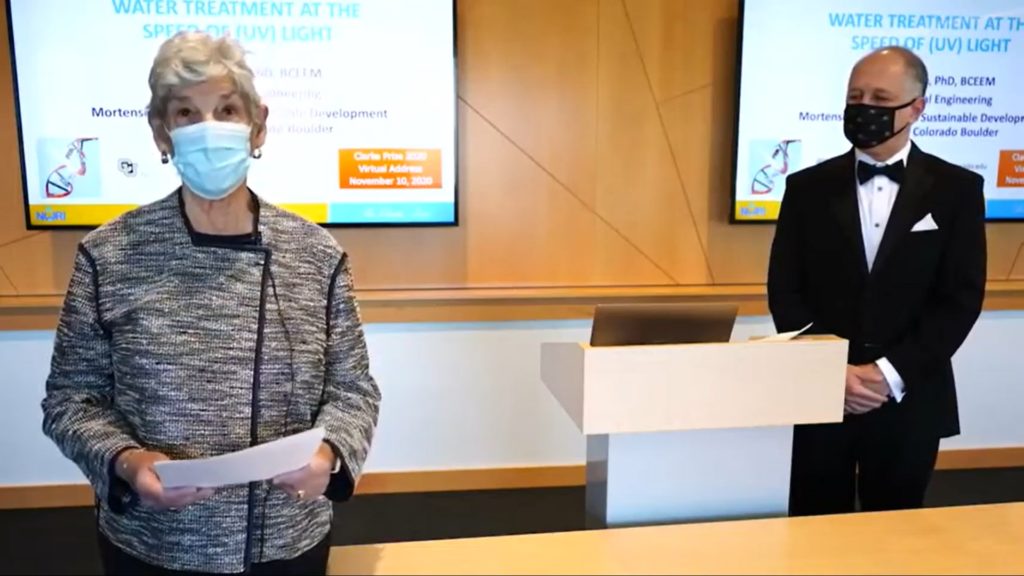
During the last few decades, the use of ultraviolet (UV) light in wastewater treatment has evolved from a niche idea discussed only in academic circles into a standard disinfection and oxidation procedure at water resource recovery facilities (WRRFs) around the world. The introduction and increased popularity of UV technology results from the efforts of such sector-leading experts as Dr. Karl Linden.
In November 2020, the National Water Research Institute (NWRI; Fountain Valley, California) awarded its annual Clarke Prize for Excellence in Water Research to Linden, a civil engineering professor at the University of Colorado Boulder (CU Boulder). Clarke Prize nomination materials describe Linden as the world’s most published researcher in the fields of UV Light-Emitting Diode (LED) systems as well as UV disinfection and oxidation for decentralized WRRFs.
“This is a huge honor,” Linden said. “The Clarke Prize is known as the highest honor for water treatment innovators in North America, and to be counted among this prestigious group is an honor for me and my students and colleagues who have worked together with me over the years.”
The Prize
Since 1991, NWRI has partnered with the Joan Irvine Smith and Athalie R. Clarke Foundation (Irvine, California) to recognize outstanding contributions to the fields of water treatment and reuse with the Clarke Prize. Clarke Prize laureates each receive $50,000.
Nominees, recommended by their peers, are evaluated by an expert panel on their top three career accomplishments; their current research or policy endeavors; their efforts to engage the public around water issues; and their leadership in improving water sustainability.
“The selection process is always challenging because many qualified people are nominated by their peers,” said George Tchobanoglous, chair of the 2020 Clarke Prize selection committee and former engineering professor at the University of California, Davis. “Karl was selected because of his documented, significant contributions to the four areas that we use to evaluate nominees.”
Linden received the prize during a virtual ceremony that took place Nov. 10.
The Awardee
Linden’s work in academia dates to 1992 as a teaching and research assistant at the University of California, Davis, before he received his doctorate degree in environmental engineering in 1997. After graduating, he moved to professorships at the University of North Carolina (Charlotte), spent 9 years at Duke University (Durham, North Carolina), and arrived at UC Boulder in 2008. He has also held visiting professorships at the University of Vienna (Austria), EAWAG (Dübendorf, Switzerland), Technical University of Munich (Germany), Tel Aviv (Israel) University, the University of Tokyo, and the University of British Columbia (Vancouver).
In his various roles, Linden and his colleagues have made revolutionary breakthroughs that have helped shape the way WRRFs use and understand UV disinfection today. With several hundred publications under his name, Linden has studied a diverse range of UV considerations spanning from the innate resistances of organisms such as adenoviruses and cryptosporidium, to best practices for using UV to purge pharmaceuticals in wastewater, to devising low-cost, low-footprint UV applications for developing countries and remote areas. From 2012 through 2015, Linden and his research team cooperated with the Bill & Melinda Gates Foundation (Seattle) to develop a toilet that uses concentrated sunlight to disinfect waste while producing useful biological charcoal, or biochar, as an additional resource.
Linden works to advance the profile of water issues through his university classes and volunteerism in various industry organizations and his practical, hands-on approach to education. Nomination materials describe Linden’s advisory work alongside utility managers, regulators, and equipment manufacturers to advance the use of UV technology, and his recent work to explore whether UV light may help combat the spread of the virus that causes COVID-19.
Linden served as president of the Association of Environmental Engineering and Science Professors (AEESP; Washington, D.C.) from 2019 to 2020. During his tenure, Linden focused on improving diversity and inclusion in environmental engineering, penning editorials in several high-profile industry publications.
In addition to numerous industry awards, Linden received the Water Environment Federation (WEF; Alexandria, Virginia) 2013 Pioneer Award in Disinfection and Public Health. He has also contributed to WEF technical resources on disinfection.
“I always encourage my students to take detours in research and follow those strange or unexplained results to see where they will take you. This is where we make new knowledge,” Linden said. “Never take the obvious path and keep curious about new opportunities.”
The Field
Linden describes that the technologies that enable UV treatment are not only becoming more sophisticated, but also more accepted. Confidence in UV performance has risen in recent years, in part because of the thorough, scientifically sound validation protocols he and his collaborators helped develop.

“When I published my first UV paper in 1993 as a graduate student, there were only a dozen or so citations that year for publications with the topic key words of ‘UV and Water Treatment and Disinfection’,” Linden recalled. “In 2020 alone, there [were] over 14,000 citations with these same key words.”
Today, about half of newly installed WRRF disinfection systems rely on UV, Linden said. Fast, effective, and not requiring reagents such as chlorine, he described that the UV market is “well-established” and will likely grow even more popular. Much of Linden’s recent research focuses on LED-based UV technologies, which promise to improve small, decentralized WRRFs. Beyond LED-based systems, Linden’s research team is exploring multi-wavelength UV systems and how different wavelengths of UV light can improve disinfection in different scenarios. The goal, he describes, is to design systems that can provide more effective water treatment in the developing world.
“I see a bright future for UV processes in distributed wastewater treatment and reuse systems and supporting the transition to autonomous and remote operation,” Linden said.
— Justin Jacques, WEF Highlights








January 22, 2021
Achievements